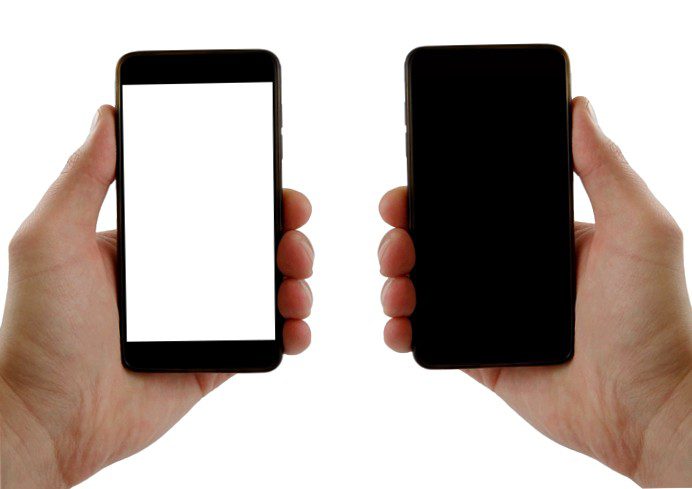The IT department or. IT managers are often responsible for managing and securing corporate mobile devices. As those in charge, of course, they know about the dangers of smartphone, tablet& Co and take care with appropriate security solutions to minimize the security risks. But just as important is the handling of the devices. It is the crucial protection of data in everyday business life. If you train your employees in the careful use of smartphones, you will also help them to exercise the necessary caution in their private lives.
The use of private devices (smartphones / Co) for business purposes is often prohibited by corporate security policies.
If company smartphones are provided by the company, then mobile device management solutions (MDM for short) are installed here in order to be able to manage the devices in a centralized manner. With the help of MDM solutions, software, data and policy distribution of the devices can be uniformly regulated and, for example, downloads from unknown sources or the use of non-secure apps can be prevented. It is thus possible to retain control over one’s own data. In rare cases, however, companies may approve access to corporate information via private devices, or employees may even have made appropriate accesses to their private devices without their knowledge.
It is therefore particularly important to train your employees in the use of smartphone& Co to raise awareness and set up behavioral rules to protect your company data.
For this reason, we’ve put together five basic tips for you and your employees to take to heart, both professionally and in their personal lives.

If access to company data is allowed to your employees with private devices, or you have not explicitly prohibited it in your security policy, there is a possibility that some employees may be using private smartphones e.g. check business emails.
However, to still protect your company data and show your employees how to protect their private information as well, teaching them how to use smartphones safely& Co especially important.
1. Only install apps and applications from trustworthy sources
Install the following software on your smartphone or tablet. Tablet apps only via the official app stores (e.g., download, install).B. Google Play or App Store). Never download apps from unknown websites or through unverified links. But also be careful when downloading from the official app stores and check the seriousness of the application. Read the ratings and reviews and familiarize yourself with the privacy policy of the application. You will be surprised how many apps store personal data.
2. Regular software updates
Regular software updates protect your devices from vulnerabilities by closing security gaps and fixing software bugs. In addition, you often receive new functions with the updates.
An update always takes some time, but still don’t let that stop you from doing updates regularly. Do this for both the operating system but also for the individual apps on the device. It helps to enable automatic updates. How to make the updates automatically while charging your device.
Also take time now and then to delete apps that are no longer needed.
3. Be careful when connecting to networks
Public WLAN offers are often unsecured and you should avoid them, especially if you are dealing with sensitive data (e.g. Payment data) or work-related information goes to. The danger of man-in-the-middle attacks – the attacker tries to intercept the communication between you and the visited website – always exists.
Keep in mind that it often applies to the WLAN with credentials offered in hotels.
Always use a VPN solution when working outside the office. VPN connection will always provide an encrypted connection between your device and the corporate network or. set up a VPN server. Using a VPN adds another layer of protection, making it much harder for third parties to access the transferred data.
Attackers could also create their own malicious WLAN network (Evil Twin attack), posing as a legitimate free WLAN hotspot. By connecting to the network, the attacker can get direct access to your device.
Also be careful when pairing your smartphone with another device via Bluetooth. Make sure you know which device you are connecting to. We recommend disabling your WLAN and Bluetooth connections when not in use.
Many cell phone plans usually already include a sufficient amount of data volume. That is why it is recommended to set up a password-protected, private hot spot via your smartphone instead of the public WLAN network.
4. Attention: Social Engineering
Phishing mails are not only a danger for PC or notebooks but also for your smartphone and tablet. Users are usually more susceptible to these methods when they are under pressure or in a hurry, e.g., if you have to answer an email quickly. As a result, many users on mobile devices often pay less attention to links and attachments. They rarely take the time to check incoming messages. As with the PC or notebook, you can also preview a link on the smartphone to be able to check the URL. You can do this by tapping the link and holding it down.
5. Security solutions for mobile devices
Just like the PC, you should also protect your mobile devices with security solutions. The right security app will protect you from malicious apps, Trojans or spyware.
In addition, some solutions offer the possibility to protect your devices or your network. remotely delete the data on it in case it is lost or stolen.